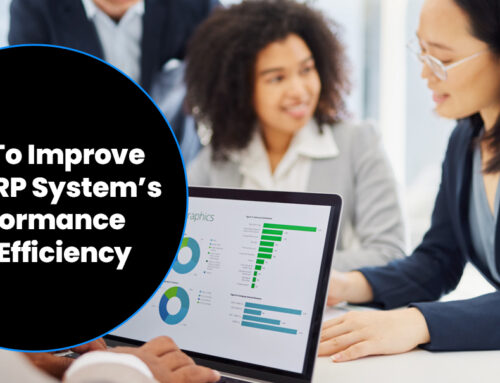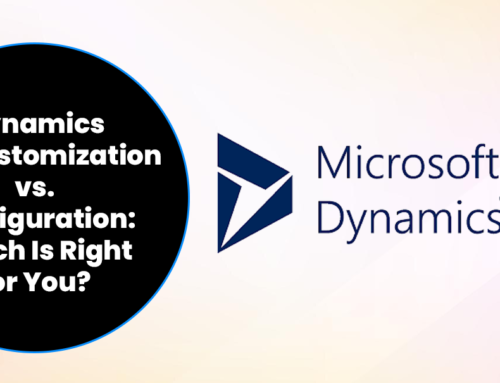
If your current ERP system has become sluggish and inefficient, you may have started conducting online research to explore your options for an upgrade. This can be an overwhelming task, particularly if you have grown accustomed to using the same on-premise system for years. One of the most crucial considerations when upgrading ERP systems will be whether to opt for an on-premise ERP or cloud deployment.
Cloud-based ERP systems have become increasingly prevalent. This blog highlights the advantages of Infor CloudSuite over other on-premise ERP solutions. As the third largest enterprise software company, Infor holds the largest market share in the manufacturing and industrial ERP industries. With a workforce of 17,300 employees and over 68,000 customers across more than 170 countries, Infor specializes in delivering industry-specific solutions tailored to discrete processes of the manufacturing industry. Its expertise and unwavering focus on manufacturing set it apart in the market.
About Infor CloudSuite
Infor CloudSuite is a purpose-built cloud ERP software provided by Infor, catering to specific industries. While Infor primarily deploys CloudSuite as a public cloud solution, it also offers private cloud deployments for industries with compliance requirements. Unlike rigid on-premises ERP systems, Infor CloudSuite’s flexibility allows users to customize the ERP functionalities to match their enterprise’s specific needs, avoiding unnecessary features.
Companies across various sizes and verticals utilize Infor CloudSuite as their cloud ERP system. Industries such as aerospace and defense, automotive, facilities management, fashion, food and beverage, industrial machinery, and retail find that they can tailor Infor CloudSuite to suit their unique requirements. In addition to core financials, sales, materials, and procurement functions, Infor CloudSuite supports additional aspects of the business, such as human capital management. Depending on the industry, specialized applications like product lifecycle management, compliance management, customer relationship management, and enterprise asset management can be included in Infor CloudSuite.
Clients of Infor CloudSuite can expect a consistent code base, whether they choose a pure cloud deployment or a hybrid model combining cloud and on-premises systems. Most clients access Infor’s cloud ERP system via web browsers like Safari, Internet Explorer, Google Chrome, or Edge. Infor provides secure and upgrade-safe options for integration and configuration. User authentication is facilitated through integration with a customer security assertion markup language 2.0-compliant identity provider, such as Microsoft Active Directory Federation Services.
The features, functions, and release schedules differ based on the industry or functional implementation chosen by the client. Infor follows a published maintenance schedule unique to each industry for upgrading its cloud environments. Clients have the flexibility to decide when they want to adopt new features released by Infor.
Infor partners with Amazon Web Services (AWS) for its data center services, benefiting from AWS’s extensive geographic presence and availability zones.
In terms of performance, Infor offers a 99.5% uptime service level agreement for Infor CloudSuite, with a historical performance of 99.9996%. Infor CloudSuite undergoes regular audits for compliance with standards like the Health Insurance Portability and Accountability Act, Service Organization Control 1, International Traffic in Arms Regulations, and Statement on Standards and Attestation Engagements 16. Infor conducts annual tests of its business continuity and disaster recovery plan, with audits performed by a third party. Audit results can be made available to Infor CloudSuite customers upon request.
Infor provides its customers with comprehensive training, consulting, planning services, and technical support. Both Infor Extreme support and CloudSuite support are available 24/7. Implementation accelerators, training, and education services are included as part of a CloudSuite subscription. Infor holds its primary client conference, Inforum, approximately once a year, along with smaller user group events and conferences catering to specific geographies or industries. Clients can also participate in Infor’s industry advisory council or the Executive Cloud Council, representing clients of various sizes and industries, helping Infor enhance the value of its cloud offerings.
Infor CloudSuite Modules
- Manufacturing
- CloudSuite Automotive
- CloudSuite Aerospace and Defense
- CloudSuite Chemicals
- CloudSuite Industrial Enterprise
- CloudSuite Industrial (Syteline)
- Human Resource
- HCM
- Workforce Management
- Distribution
- CloudSuite Distribution Enterprise
- CloudSuite Distribution
- CloudSuite Equipment
- Service Industries
- CloudSuite Corporate
- CloudSuite Healthcare
- CloudSuite Public Sector
- Finance
- CloudSuite Financials
- Expense Management
- Fashion and Retail
- CloudSuite Fashion
- PLM for Fashion
- CloudSuite Retail
- Asset Management
- CloudSuite Facilities Management
- EAM
- Sales and Services
- CRM
- Configure Price Quote
- Service and Retail
- Supply Chain
- SCM
- WMS
- Consumer Products
- CloudSuite Food and Beverages
Infor CloudSuite Pricing
Infor CloudSuite is available under a subscription model and sold by Infor and its partners. It is typically priced per user per month or based on an organization’s total number of employees. Contract lengths vary, with the typical duration being three years and a minimum contract length of one year. While Infor does not currently offer a free trial, it plans to introduce Try and Buy experiences for some industry-specific CloudSuite offerings.
Infor CloudSuite Implementations: On-premise, Single-tenant, and Multi-tenant
A high-level overview of the distinctions between Infor CloudSuite on-premise, single-tenant, and multi-tenant cloud environments is as follows:
On-premise: This refers to hosting the Infor CloudSuite ERP system on your organization’s own servers within your premises.
Single-tenant: This is akin to hosting your on-premise ERP systems on cloud servers provided by a third party.
Multi-tenant: In this scenario, Infor hosts the ERP system and its supporting infrastructure in a cloud environment shared with other companies. However, each company’s data is securely segregated and remains invisible to other organizations.
When considering the differences, comparing the on-premise deployment model with the multi-tenant Infor Cloud option is crucial.
Infor CloudSuite ERP: Key Differentiators
One of Infor’s core advantages lies in its extensive industry-specific functionality. Unlike its competitors, Infor develops purpose-built products for particular industries, reducing the need for multiple add-ons. Infor predominantly serves the SMB market, although it also caters to the upper-mid segment. Its areas of strength include the manufacturing and industrial sectors. Additionally, Infor excels in niche industries like fashion, where its solutions are particularly well-suited. Here are other differentiators of Infor CloudSuite:
Infor Cloud ERP’s Pure-Play Business Models:
The majority of Infor products are specifically tailored for pure-play business models, including Automotive OEMs, Aerospace and Defense Equipment Manufacturers, Industrial Distributors, as well as industries like Fashion, Food, Beverage, and Chemicals.
Pre-Integrated Add-Ons Through Infor OS:
Most Infor products leverage the Infor OS layer, including solutions like Infor Factory Track, Infor WMS, and Infor Nexus. This integration capability benefits SMB companies as it helps them mitigate financial and integration risks often associated with competitors who may not provide pre-built integration options. Moreover, the Infor OS is included as part of the subscription, eliminating the need for an additional licensing fee for the integration tools.
Infor Support:
Infor’s support stands out as highly responsive and exceptional within the ERP industry, surpassing other vendors. Their support staff typically provides timely responses within a few hours, offering the option to escalate tickets and ensure faster responses for higher-priority issues. This level of support is in addition to the assistance you might receive from your consulting company.
Infor’s Products are Highly Customizable:
Infor products offer extensive customization options, allowing users to create new stored procedures or tables on top of the core platform. Additionally, these products provide access to the entire .Net framework for customizing the user interface (UI). Developers with a background in Windows-based development may find the .Net framework intuitive to work with.
Infor Offers Training Instances Provided as Part of the Subscription:
Infor provides training instances, whereas competitors often charge up to $20K per year for each additional instance. Moreover, the cost of additional test instances is also lower with Infor. This is particularly advantageous for companies anticipating extensive ERP system customization, as it enables them to have affordable and dedicated instances for testing and training purposes.
Infor Cloud Vs. On-Premise ERP systems: What are the Advantages of Multi-tenant Cloud Deployment
Businesses in various industries are increasingly recognizing the significance of investing in cloud-based technology to navigate the unpredictability of global events. These investments facilitate business transformation, cost reduction, enhanced productivity, and effective solutions for labor shortages and supply chain challenges. Explore the comparison between on-premises solutions and Infor multi-tenant cloud to understand their respective merits.
Scalability, resilience, and business continuity
- On-premises ERP systems often require manual configuration for scalability across different workloads, which can lead to oversizing. In contrast, Infor’s multi-tenant cloud deployments feature auto-scaling functionality within applications, allowing for automatic scaling to accommodate various workloads.
- While on-premises ERP implementation involves static sizing of hardware, resulting in underutilization during periods of low volume and performance issues during peak volumes. Infor’s multi-tenant cloud leverages a modern product architecture that supports highly elastic applications, enabling automatic scaling based on workload demands.
- Static sizing in on-premises ERP systems increases costs as IT departments constantly strive to align with changing business needs. In contrast, Infor’s multi-tenant cloud offers an elastic architecture that provides a more efficient and cost-effective solution compared to other deployment methods.
- Infor’s multi-tenant cloud takes advantage of on-demand cloud platforms with high-availability zones, ensuring resilience and reliability in service delivery.
Continuous Innovation
- On-premises ERP systems require manual software updates, whereas Infor’s multi-tenant cloud deployment offers automatic upgrades, ensuring organizations have access to the latest enterprise functionality without the need for costly infrastructure investments.
- In on-premises ERP implementations, the availability of new features is contingent on upgrading to the latest release. In contrast, Infor CloudSuite allows customers to preview new features through feature toggle switches, granting them control over when to turn specific features on or off.
- Infor CloudSuite provides zero-cost upgrades for customers subscribed to their services, delivering regular upgrades on a consistent schedule. This stands in contrast to on-premises ERP implementations that incur expenses due to the resource-intensive nature of frequent software upgrades, testing, and validation processes.
Lower cost of ownership
- On-premises ERP systems often incur high hardware costs due to the need to size the infrastructure for peak performance, as hosted applications lack elasticity. In contrast, Infor Cloud ERP’s modern product architecture supports highly elastic applications, significantly reducing hardware costs.
- Although on-premises ERP systems are commonly perceived as more secure, the associated security costs tend to be higher as customers manage their own security infrastructure and resources. Infor Cloud ERP offers lower security costs compared to on-premises alternatives, as cloud service providers have established best practices for addressing multiple levels of security.
- While on-premises ERP implementations may provide marginal cost reductions in operational expenses, Infor CloudSuite offers substantial reductions in operational costs. These cost savings encompass various aspects, such as performance optimization, monitoring, patching, upgrades, integrations, testing, and more.
Faster time to value
- Infor Cloud ERP expedites the application deployment process through automated provisioning, eliminating concerns related to hardware and software. Conversely, on-premises ERP systems often entail lengthy application installations due to dependencies on hardware and software versions.
- Managing hardware and software failures in on-premises ERP implementations can be challenging as they lack automated data replication across availability zones and regions. In contrast, Infor CloudSuite handles failures seamlessly through on-demand cloud platform availability zones and replication.
- Infor Cloud ERP significantly reduces unplanned application downtime by providing a resilient infrastructure. This enhanced uptime directly translates into improved productivity, enabling businesses to operate more efficiently.
To Summarize: The Time to Switch to a Cloud-based ERP Solution is Now!
Organizations have long favored on-premise ERP systems. However, the momentum is shifting towards cloud ERP due to various factors, including improved ROI, faster issue resolution, enhanced business intelligence, quicker deployment, real-time data visibility and accessibility, seamless integration and customizations, and more. It is evident that cloud ERP systems offer a superior, cost-effective, scalable, and agile alternative to traditional ERP systems. To maximize the benefits of cloud-based ERP software, businesses should prioritize automating processes on the cloud ERP system.
Investing in a cloud-based ERP system is highly valuable, as it empowers organizations to perform at their best, operate with increased flexibility, and foster a collaborative working environment that drives optimal business performance. Enterprises that embrace cloud technology can experience revenue growth and increased profitability.






Leave A Comment